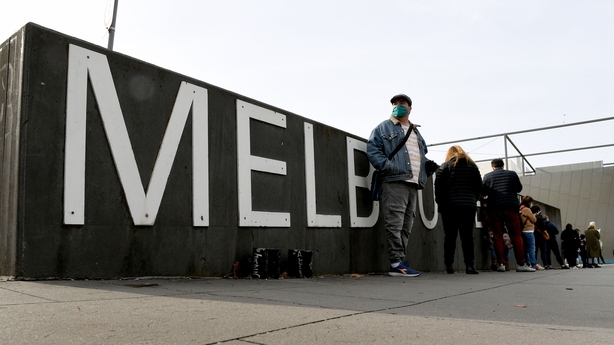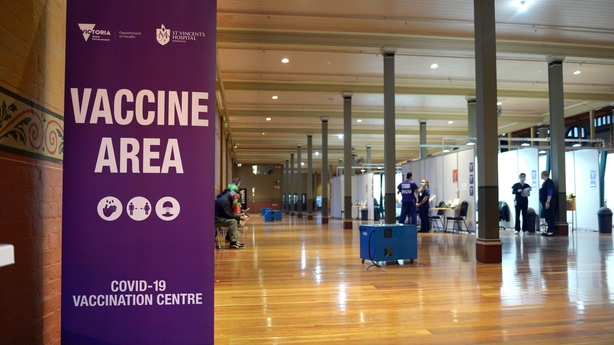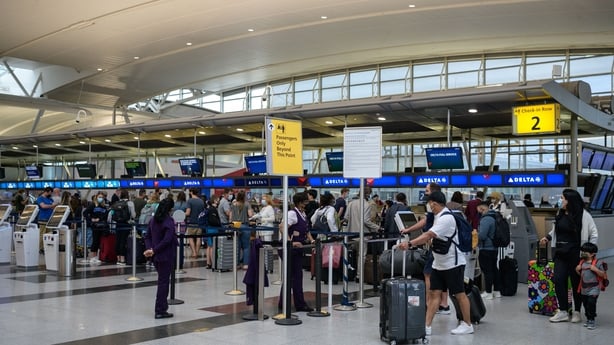People in France will be able to enjoy indoor dining and stay outside until 11pm for the first time in months under a new relaxation of Covid rules, as cases decline and vaccinations increase.
In a major new phase of the lockdown easing program, diners will be able to enter cafes and restaurants, and terrace consumption has already resumed on May 19.
The nighttime curfew will now start later – at 11pm instead of 9pm – before being canceled entirely if all goes as planned on June 30.
Restrictions on cultural venues, which reopened on May 19, have also been eased, with a sense of normalcy returning to France with great summer weather.
«A new step will be taken» on Wednesday, President Emmanuel Macron wrote on Twitter.
He said, «Life will resume across our lands. It is part of our culture, our art of living, and we will get to know ourselves all over again.»
Tables of up to six will be allowed in cafes and restaurants while gyms can also reopen to customers indoors.
However, in almost all of France, masks remain mandatory even outside doors until further notice.
The latest figures indicate that the health situation in France is improving.
The numbers in intensive care fell to 2,394, compared to 6,000 in late April.
As of yesterday, more than 28 million people had had at least one vaccine — nearly 43% of the population, and 55% of the adult population.
Despite the lockdowns, France over the past half year has suffered less severe lockdowns than its neighbors – notably avoiding closing major schools – in what Macron saw as a big gamble.
Its vaccine campaign got off to a choppy start but is now seen as a success, given 700,000 hits on some days.
Traveling to France has also become easier, as France has fully opened its borders to residents of the European Union as of today.
Visitors from the EU will not have to submit a negative antigen test or PCR test if they have had a full course of one of the four EU-authorized vaccines.
Travel from other regions, including the United States and Britain, is subject to stricter restrictions, but visitors will no longer have to prove a compelling reason to visit, as long as they are fully vaccinated.
Australia’s second largest city emerges from two-week virus lockdown
Five million Melbourne residents will emerge from lockdown tomorrow after Australian authorities said their adherence to strict rules «changed the trajectory» of the city’s coronavirus outbreak.
After two weeks of stay-at-home orders, the toughest restrictions will be lifted in Australia’s second largest city, after a new case of the virus was registered yesterday.
«This is a good day. Everyone should be absolutely proud of what we have all achieved together,» said Victoria’s acting premier, James Merlino.
He said the collective efforts had vaporized the outbreak in the city, which has seen more than 80 people become infected with the kappa or delta strains that originated in India.
«But we know that’s not over yet, and until widespread vaccination is done across Victoria and across our country, the virus will still be with us,» Merlino said.
Melbourne residents are still unable to travel more than 25 kilometers from their homes or receive visitors, but may congregate in groups of up to 10 outside.

Schools, cafes and beauty salons can reopen, but gyms and nightclubs must remain closed for at least another week.
Brett Sutton, Victoria’s chief health officer, said there could be no «quick return» to any restrictions as the situation remained «reasonably volatile».
«We have to move in increments, safely, but with minimal restrictions that we know will continue to control this,» he said.
Australia is one of the few countries globally with no epidemic transmission, with 30,000 cases of Covid-19 and less than 1,000 deaths in a population of 25 million.
Borders remain closed to most travelers – with the exception of those from New Zealand – and authorities are quick to impose restrictions when cases are detected.
The virus is believed to have leaked from quarantine facilities in temporary hotels in Australia as many as 18 times in six months, prompting a rigorous scrutiny of the system in recent weeks.
The outbreak in Taiwan and Japan also underlined how initial success in containing the virus could quickly erode without mass vaccination.
Australia had given about 5.2 million hits as of Monday, but only a small portion of people had been fully vaccinated.
The United States eases travel warnings for dozens of countries, including Japan
The United States has eased its travel warnings to dozens of countries including Olympic-hosting Japan and much of Europe, spurring hopes that circulating vaccines will return to normal travel.
Close allies and neighbors of the United States, including Canada, Mexico, France and Germany, also received upgrades, with the State Department telling Americans to reconsider travel but ending its blanket advice not to go at all.
The State Department also raised 11 countries to say Americans can exercise normal precautions when traveling there — the standard US travel advice for developed countries before the pandemic.
Countries that received a clean bill of health included Ghana, Senegal, Singapore, South Korea, and one European country – Malta.
A State Department official said the changes mirror recommendations issued Monday by the Centers for Disease Control and Prevention, which called on Americans to be fully vaccinated before travel, but said unvaccinated people should avoid trips.
«As conditions evolve, we regularly update our advice for American travelers,» the official said.
This travel advice has been closely watched for clues about when the United States will end the ban imposed more than a year ago by former President Donald Trump on most visitors from the European Union and Britain.
Ahead of Joe Biden’s first trip to Europe as president, Jake Sullivan, his national security adviser, said any easing of travel restrictions would be transparent and «guided by science and evidence.»
The United States also said it would hold talks with Canada, Mexico, the European Union and Britain on how to resume international travel.
«While we will not reopen international travel today, we hope that these expert working groups will help us use our collective experience to chart a way forward,» said one of the officials.
The US State Department made headlines last month by warning against all travel to Japan, whose July Olympics have already been postponed by a year due to Covid.
The Summer Games have sparked public opposition within Japan, which prevents foreign fans from coming.
Other countries where US travel advice has been eased include South Africa, which has battled a form of the Covid virus, as well as Greece and Spain, which have been at the forefront of countries reopening to tourists.

«Lector profesional. Jugador galardonado. Aficionado a los zombis. Adicto a las redes sociales. Experto en tocino. Erudito en Internet»

